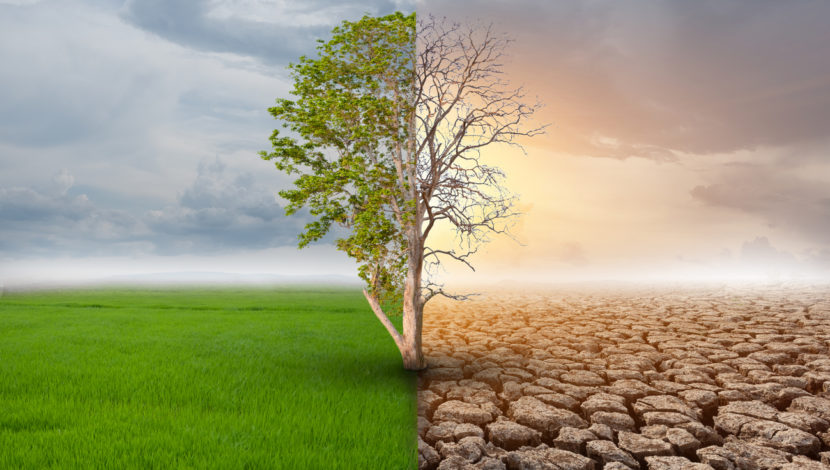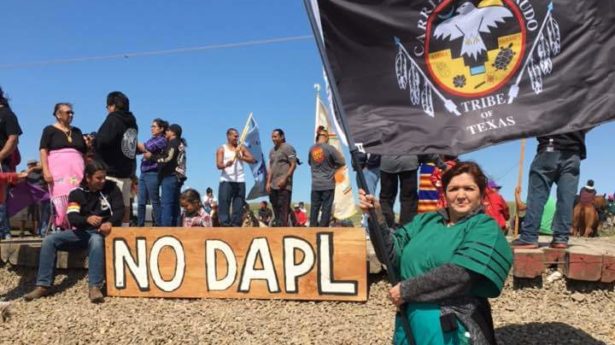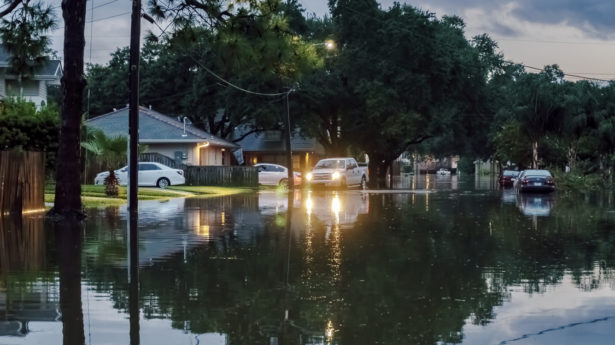The Unitarian Universalist Service Committee advances human rights through grassroots collaborations.
UUSC, Partners Respond to Decision to Hold UN Climate Change Conference (COP26) in Person

By UUSC Staff on September 20, 2021
The Unitarian Universalist Service Committee (UUSC) and its peer organization, the Unitarian Universalist Association Office at the United Nations (UU@UN), have joined with UUSC’s partners in strongly urging the organizers of the 26th Conference of Parties (COP) international climate conference to postpone the event, slated to be held November 1–12 in Glasgow, Scotland. The conference is tentatively scheduled to be held exclusively in person.
This year’s COP is occurring during an unprecedented time in history, where entire countries are in lockdown and where international travel is limited, more expensive, and risky. This situation privileges those who have access to vaccines and the means to afford travel and reliable access to quality healthcare. This means that many people in the Global South, including UUSC’s partners, will be excluded from the conference this year.
Therefore, in alignment with the principles of climate justice and our commitment to dismantling systems of oppression and advancing human rights, UUSC and UU@UN are prioritizing the registration of grassroots communities and advocates from countries in the Global South to ensure their presence at COP26 and the recognition of their advocacy in this space. We acknowledge that a COP without the active and meaningful participation of grassroots representatives from the Global South is not a COP that is inclusive and one that we should be supporting.
Below are statements from UUSC, UU@UNO, and their partners:
“Pacific small island developing states (SIDS) have the least carbon footprint, yet climate change is a daily reality for our vulnerable people facing the consequences and devastating losses of the climate crisis that are both economic and non-economic. Under any circumstance, this entails the real need for our voices and presence in any global forum making important decisions and policies, especially on climate finance. Our absence—through circumstances beyond our control —allows this COP to implement inequitable processes where our fate will be decided by those who have created the monumental global problem we now face and have other vested interests that hinder the setting of real priorities. Our absence means we’re being represented by those least qualified to understand and speak on our behalf.
Fiji is now hard hit by the second wave of the COVID-19 pandemic after the Delta variant reached our shores in April this year. Our prohibitive circumstances have been magnified and make attendance at COP26 both logistically and financially impossible. We currently live in containment zones with all travel—including global travel—suspended except for emergencies. International travel is not a reality and even when available, it is expensive and beyond our reach unless heavily subsidized.”—Makereta Waqavonvono, Founder of Climate Tok and Legal & Development Consultant at Social Empowerment Education Programme (Fiji)
“This international event is one of the largest climate change conferences in the world and given the impact of the COVID-19 pandemic and limited access to vaccines and quality healthcare experienced by many countries, we affirm the call from our partners that the conference should be postponed. The fact that the conference is still being held in person exacerbates existing inequities in access to climate policy conversations.. There are many countries—most of which are addressing the immediate impacts of climate change—that continue to have inadequate access to the vaccine and are homes to civil society organizations that do not have the resources needed to travel to the conference and cover the additional logistical costs required to keep them safe. Ignoring the needs of the people in these nations and not taking greater care in understanding the unique challenges they face in addressing the pandemic and its historic impact is an incredible injustice heaped upon those who are already dealing with more than their share of inequities.”—Rev. Mary Katherine Morn, President and CEO, Unitarian Universalist Service Committee
“Climate change-related sea level rise is a matter of life and death for Indigenous communities and those living in low-lying atolls. Any COP meeting is of great importance for us; it means a lot to us because it’s about the very existence of our people. Our moral duty to our communities, people, and future generations is to continue fighting to keep us afloat. As former Senator Michael Enzi said, ‘If you’re not at the table, you’re on the menu.’
“Coming from the island most vulnerable to climate change, we want to be at the negotiation table, not the menu. As a former co-chair of the International Indigenous Peoples Forum on Climate Change (IIPFCC) and the current director for Tuvalu Association of NGOs, I support the overwhelming call from CAN-I to postpone COP26 to ensure that we, those living in the most vulnerable countries, can participate in a way that is safe, meaningful and inclusive.”—Maina Talia, Director, Tuvalu Association for NGO’s (TANGO) and Board Member of Tuvalu Climate Action Network (TuCAN)
***
About UUSC: Guided by the belief that all people have inherent worth and dignity, UUSC advances human rights globally by partnering with affected communities who are confronting injustice, mobilizing to challenge oppressive systems, and inspiring and sustaining spiritually grounded activism for justice. We invite you to join us in this journey toward realizing a better future!
Image Credit: iStock – chonticha wat

